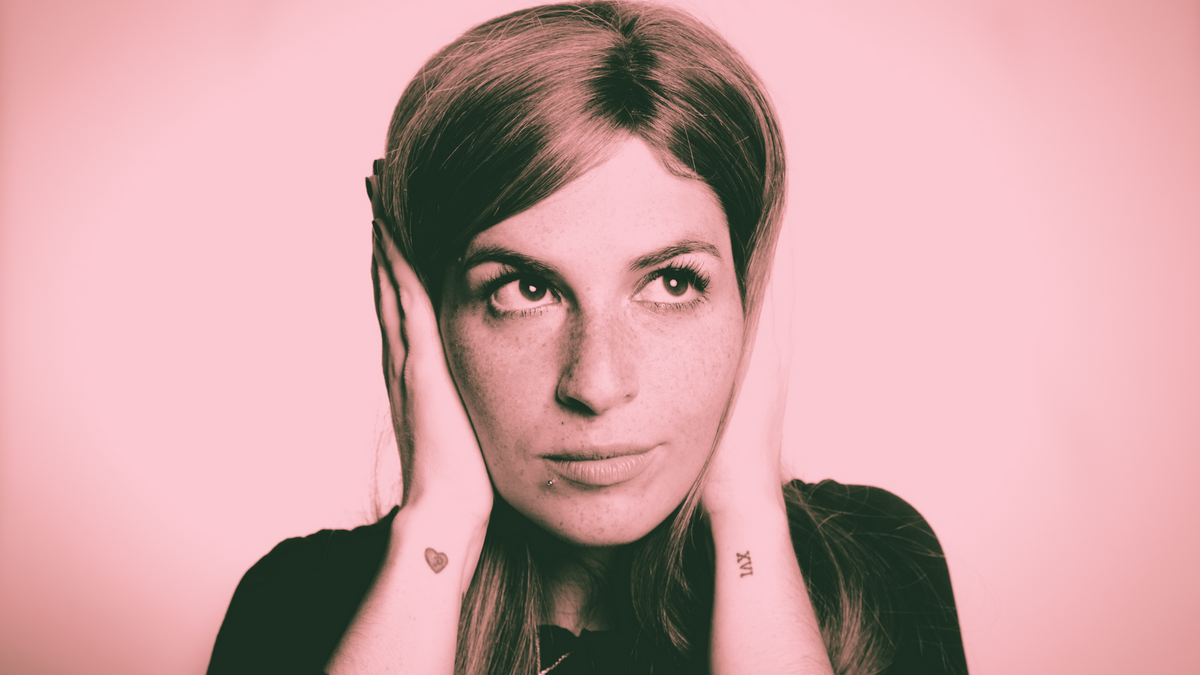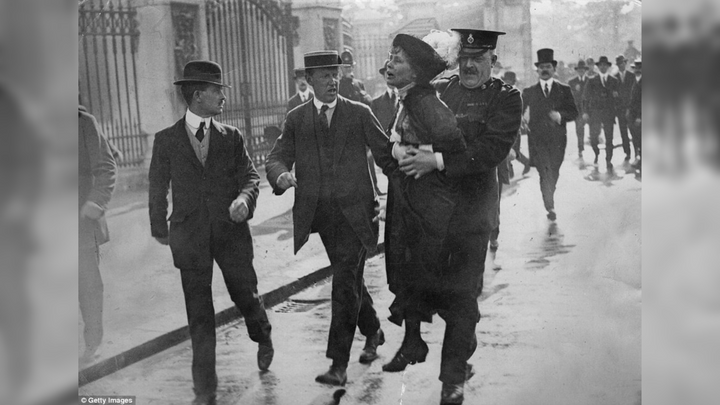The Curious Misdiagnosis of Women: It’s About Damn Time
A few weeks ago, I was (finally) diagnosed officially with Autism Spectrum Condition after five years of suspecting this was the case.

Here’s one I bet you haven’t heard before: what do Dustin Hoffman’s character in Rain Man, the kid from The Curious Incident of the Dog in the Night-Time, and a perpetual student in her 40’s all have in common? Do you give up? If this sounds like the start of a bad joke, then you’re right. It’s even less funny when you’re the punchline.
In a few weeks I’m turning 40. It’s not a bad thing, I honestly don’t care. That’s not what I’m angry about. A few weeks ago, I was (finally) diagnosed officially with Autism Spectrum Condition (ASC), after five years of suspecting this was the case. I went for an assessment and I was refused a positive diagnosis on very dubious grounds. I persevered and had another assessment with The Adult Autism Practice in Ireland. And at last, I heard those magic words.
It's hard to describe what it feels like to suspect you’re different from everyone else, but not to be able to put your finger on it. It’s even worse when you want to tell your medically trained family about it and they tell you that you look nothing like Rain Man, or the male children they used to see in Paediatrics. If you’re not counting dropped match sticks or you happen to be Autistic and verbal – or god forbid, female – you’re going to hear all about how wrong you are. About yourself.
Things are changing at a snail’s pace for adult-diagnosed females with ASC, but it’s better than it was. In the DSM-V it’s referred to as “disorder” but many people with Autism prefer “condition” because, you know, we’re not sick, we’re different. Research still talks about a female protective effect in Autism diagnosis, whereby because females weren’t as often diagnosed, it was supposed their sex protected them from Autism. This hasn’t gone away, by the way, but a vital question has been asked in recent years: what if females with Autism present differently from males?
"For years I drank myself stupid to deal with being alive, but because I live in Ireland, I was just “being social."
Males are still three to four times more likely to be diagnosed as children, and it is predicted that for every 1000 women 60 have clinical ASC and 48 of those women will not be positively diagnosed, therefore will not have access to any support they might need. Women with ASC are more likely than men with the same condition to complete suicide, and for ASC people under 25, 1 in 4 will have suicidal ideation. So, what’s the problem with diagnosticians? Or parents? Or schoolteachers? Who is responsible for the undiagnosed females living as square pegs in a round hole society, anyway?
Let’s get back to stereotypes. True or false: Autistic people can’t feel empathy; Autistic people can’t operate with others on a social level; Autistic people are highly logical and don’t have the capacity to think conceptually or with imagination. As an Autistic person, I can tell you that I feel empathy – so much so that I find it overwhelming to talk to people who are in high emotional states because I empathise to such a degree that I “take on” their emotional burden as if it’s my own. Socialising can be hard, but when managed for energy expenditure it can be incredibly rewarding. I am logical, but I’m also a fiction writer and enjoy being creative, like many other people with ASC, and I must think conceptually for my college courses.
What has any of this got to do with females lacking their diagnoses for Autism? It’s all about how different the social rules are for females. From childhood to adulthood, we are told how to behave directly and indirectly, through parents and carers, but also entertainment and advertising. As girls we grew up being told how to behave like a “lady”, like a heteronormative female in a patriarchal society. Unless your parents were very aware and bravely told you to do your own thing. Well done to them. Not my experience.
Here are some more stereotypes for you. Males are less directed by social expectations to behave in a refined way, instead encouraged to be boisterous, demanding, loud, vocal about their needs, and are thought to need specific orientation to be able to communicate in meaningful ways, unlike the little girls who “appear” to do it naturally. It’s all social (gender) conditioning. Little boys are just as likely to want to play with dolls or make up but are taught not to, and little girls love to climb trees and play video games. We all know this, but that knowledge seems to disappear when it comes to Neurodivergence. If girls experience pressure to conform to being little social creatures in ways boys don’t, wouldn’t it make sense that for a diagnostic criterion steeped in stereotypes about antisocial, non-verbal Dog in the Night Time-like symptoms, girls would slip through the cracks? Neurodivergent people learn that if you want friends you must follow certain social rules that you learn by watching others and copying, otherwise known as observing and masking. Women with Autism wear a “mask” of being Neurotypical while demonstrating the social rules we’ve observed. And we’re very good at it. So good that nobody knows we’re chipping away at our true identities every time we do it.
"Who is responsible for the undiagnosed females living as square pegs in a round hole society, anyway?"
Some women in, or approaching, middle-age will experience menopausal symptoms, and some reproductive change symptoms can have a comorbidity with Autism, although studies can vary their positive association. I was so convinced I was going through perimenopause and had pre-menstrual dysphoric disorder (PMDD) that I began visiting a gynaecologist. All my symptoms I now recognise were ASC, but not enough knowledge about either condition is widely available to women without extensive Google searches. My excessive sweating reflected how anxious I always am leaving the house, the dramatic mood swings were overstimulation and burn out, and the weight gain is the comfort food offers when the world is totally unmanageable.
This is my experience, and every person with Autism experiences their symptoms differently. For years I drank myself stupid to deal with being alive, but because I live in Ireland, I was just “being social.” Nobody was going to criticise me for regularly drinking with friends in a bar. I nearly lost my partner over my alcohol use, but it was when I stopped that the real problem became much clearer. And COVID actually helped. With no bars open and no parties to go to, stopping drinking was much easier. It also showed me how little I missed other people, and how much calmer I felt at home. Lockdown happened about a year after my first (negative) diagnosis, but it was while I became sober, forced to stay at home and loving it, that I realised I had been misdiagnosed. Thinking clearly for the first time in years and observing how comforted I was by being alone, I saw how difficult all the Neurotypical people around me found not socialising. To me it felt like being on a retreat from life. Everything stopped, and finally, so could I.
Getting a diagnosis is a privilege and not available to everyone as waiting lists can be as long as two years in Ireland. I went privately and it took four months but cost me €850 ($920). It can be more, depending on who you go to. My first diagnostician cost a grand and she was supposed to be a specialist for women with ASC! It’s prohibitively expensive and even if you have the money, you might get someone who sees your capability of maintaining eye contact as good enough reason to refuse you a positive diagnosis. It’s not, by the way. ASC is a spectrum of symptoms and nothing is hard and fast. There is an intersectional aspect to diagnosis which deserves a full article alone. Studies have shown that ASC diagnoses are even harder to come by for people of colour, and for those from low socioeconomic backgrounds. And this is in High-Income countries, let alone Low- or Middle-Income countries where cultural beliefs or environmental factors may prevent women prioritising themselves.
If you suspect you have a Neurodivergent condition I urge you to find help and support, whether it’s an official diagnosis or just asking for some small changes at work. Self-diagnosis is legitimate, certainly while official diagnoses are a privilege to most people. Before diagnosis, I questioned my purpose in the world. It felt like I was living in a between world, transparent, insubstantial, irrelevant, and taking up space. Now, with a diagnosis, I am validated. The psychologist in Ireland explained to me that I could use the diagnosis to apply for Disability Benefits which would be rigorously means tested, and I can have my doctor make some allowances for me for visits if I need them. Also, my university can help me to make things easier to study. This positive diagnosis has finally given me a good reason to feel the way I do, and I plan to dedicate the rest of my life to Neurodivergent research.
Resources for Autism Spectrum Condition women:
Autistic Girls Network
Institute of Neurodiversity
Women Beyond the Box
Adult Autism Practice
The generous support of our readers allows 4W to pay our all-female staff and over 50 writers across the globe for original articles and reporting you can’t find anywhere else. Like our work? Become a monthly donor!
Enter your email below to sign in or become a 4W member and join the conversation.
(Already did this? Try refreshing the page!)





Comments